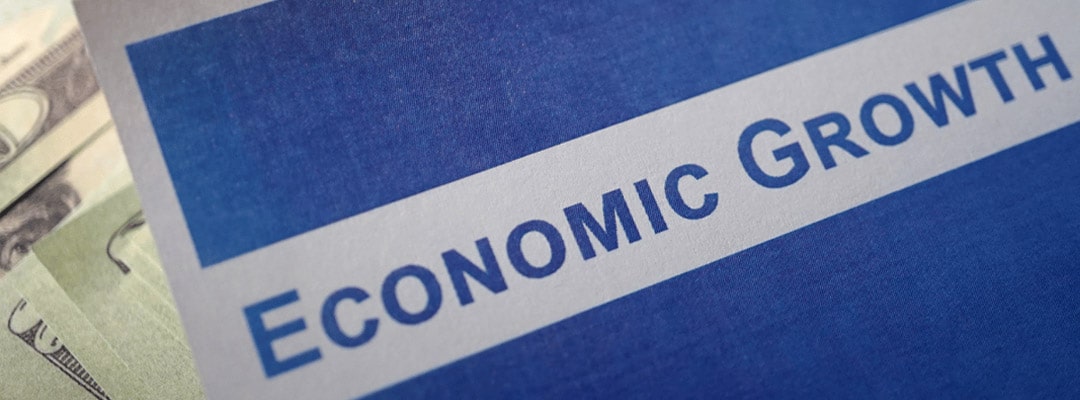Hispanic Heritage Month, celebrated from September 15 to October 15, honors the rich heritage and contributions of Hispanic and Latino Americans. Commencing on September 15th, this month we recognize the independence anniversaries of several Latin American countries.
It’s also an opportune time to focus on financial wellness within the Hispanic community, emphasizing the importance of financial literacy, wealth-building strategies, and access to resources that can help secure a stable and prosperous future.
For additional financial resources, be sure to visit the Institute of Financial Wellness (IFW) and access a library of knowledge, including a retirement guide and debt management strategies.
Key Takeaways
- Hispanic Heritage Month, originating in 1968, celebrates the contributions of Hispanic and Latinx communities in the U.S., expanding to a month-long observance in 1988.
- Hispanic Americans significantly impact the U.S. economy by owning nearly 5 million businesses that generate over $800 billion annually and contribute to a diverse workforce.
- Financial wellness strategies, including debt management and retirement strategies, are essential for Hispanic communities to achieve long-term financial security and stability.
Be sure to attend IFW’s free Retirement Score Live Webinar to learn about all things retirement and gain valuable insights from industry leaders. While you’re at it, request your retirement score today and start your planning!
Understanding Hispanic Heritage Month: Origins & Importance

Did you know that the vibrant celebration of Hispanic Heritage Month started as just a week-long event?
Thanks to the efforts of California Congressman George E. Brown and President Lyndon Johnson, who aimed to highlight the historical significance of Latinx populations. On September 17, 1968, Congress passed Public Law 90-48, officially authorizing the president to issue annual proclamations declaring September 15 and 16 as National Hispanic Heritage Week.
Expansion to a Month-Long Celebration

The journey from a single week to a month-long recognition of Latinx contributions is a testament to the community’s profound impact on American history and culture.
In 1988, Hispanic Heritage Week was expanded to a month-long celebration, reflecting the growing recognition of the significant contributions of Hispanic Americans to the U.S. President George H.W. Bush was the first to declare the 31-day period from September 15 to October 15 as National Hispanic Heritage Month, marking a broader acknowledgment of Hispanic culture’s profound impact.
Importance of September 15

September 15 is a date of immense historical importance, chosen to commence Hispanic Heritage Month as it marks the independence anniversaries of several Central American countries.
In 1821, Costa Rica, El Salvador, Guatemala, Honduras, and Nicaragua declared their independence from Spain, making this date a symbol of freedom and unity for many Hispanic communities.
This date, therefore, provides a fitting start to a month dedicated to recognizing and celebrating the achievements and contributions of Hispanic Americans in the United States.
Contributions of Hispanic Americans

This year’s theme for Hispanic Heritage Month is Pioneers of Change: Shaping the Future [1].
It recognizes the trailblazers within the Hispanic and Latino communities who have made significant strides in various fields, from social justice to science and technology, paving the way for future generations.
This theme encourages us to celebrate those who have not only contributed to the past but are actively shaping a brighter, more inclusive future.
Hispanic Americans have enriched U.S. culture in many ways, including:
- The arts
- Cuisine
- Social movements
- And beyond
Their influence is felt in every aspect of American life, making the nation richer and more diverse.
Economic Impact

Hispanic Americans play a very crucial role in the U.S. economy. Imagine nearly 5 million Hispanic-owned businesses fueling over $800 billion in annual revenue and creating millions of jobs [2]. This isn’t just participation; it’s economic power in action.
They are a vital segment of the workforce, driving economic growth through entrepreneurship and labor participation.
The economic contributions of Hispanic Americans are not just about numbers; they reflect a commitment to hard work and financial well-being that benefits the entire country.
Hispanic Americans contribute to a stronger, more resilient economy.
The Role of Financial Wellness in Hispanic Communities

Imagine having the confidence to make life’s biggest decisions without the weight of financial stress – that’s the essence of financial health or wellness. It’s not just about wealth; it’s about well-being.
For Hispanic communities, achieving financial wellness involves understanding personal finance, managing money wisely, and planning for a secure future. Foundational elements of financial literacy, financial wellness, and financial wellbeing include budgeting, saving, and making informed financial decisions.
These practices are essential for building a solid financial foundation and achieving long-term financial goals.
Building an Emergency Fund

An emergency fund is a crucial financial safety net that enables individuals to manage unexpected financial emergencies without falling into debt.
It is recommended to aim for three to six months’ worth of living expenses to cover unforeseen events such as medical emergencies, job loss, or major repairs.
For self-employed individuals, aiming for six to twelve months’ worth of expenses is advisable due to the unpredictable nature of their income. To build an emergency fund not only provides financial security but also reduces financial stress, allowing individuals to focus on their long-term financial goals.
Debt Management Strategies

Effective debt management is vital for improving financial health and achieving financial wellness.
Debt can serve as a tool for reaching personal goals, such as buying a home or a car, but it must be managed wisely to avoid financial distress.
Developing a budget that includes savings, debt payments, and monitoring your credit score is essential for managing debt effectively.
Strategies like the debt avalanche method, which focuses on paying off high-interest debt first, and the debt snowball method, which targets smaller debts, can be effective in reducing overall debt. Utilizing these strategies can significantly improve financial stability and reduce financial stress.
Investing for the Future

Investing is a key component of financial wellness and future financial security. Starting to invest early allows individuals to take advantage of compound interest, which can enhance financial security over time. This includes planning for retirement, college-saving plans, and other long-term financial goals.
Investing wisely is crucial for achieving financial freedom and long-term financial security.
How to Celebrate Hispanic Heritage Month

Celebrating Hispanic Heritage Month provides an opportunity to explore Hispanic cultures, histories, and traditions. Engaging in cultural activities such as festivals, concerts, and exhibitions fosters a greater understanding and appreciation of Hispanic contributions to American life.
This month we encourage you to immerse yourself in the vibrant diversity that Hispanic cultures offer!
Support Hispanic-Owned Businesses
Supporting Hispanic-owned businesses is a practical way to contribute to the economic vitality of the Hispanic community.
These businesses play a significant role in enhancing economic growth and resilience within the Latino community. Purchasing from Hispanic-owned businesses promotes economic growth and acknowledges their significant impact on the U.S. economy.
Summary
Hispanic Heritage Month is a time to celebrate the rich history, culture, and contributions of Hispanic Americans. From their significant economic impact to their cultural influences, Hispanic Americans have enriched the United States in countless ways. Financial wellness is crucial for the continued growth and prosperity of Hispanic communities, and by adopting sound financial practices, individuals can achieve financial stability and security.
In conclusion, the celebration of Hispanic Heritage Month is not just about honoring the past but also about building a brighter financial future. By supporting Hispanic-owned businesses, engaging in cultural activities, and adopting effective financial strategies, we can all contribute to a more inclusive and prosperous society.
Frequently Asked Questions
What is the significance of September 15 in Hispanic Heritage Month?
September 15 is significant in Hispanic Heritage Month as it marks the independence anniversaries of Costa Rica, El Salvador, Guatemala, Honduras, and Nicaragua, highlighting the cultural pride and contributions of these nations. Celebrating this date is an important way to recognize the heritage and history of the Hispanic community.
How many Hispanic-owned businesses are there in the U.S.?
There are nearly 5 million Hispanic-owned businesses in the U.S., contributing over $800 billion to the economy and employing around 3 million individuals.
What is the recommended amount for an emergency fund?
The recommended amount for an emergency fund is three to six months’ worth of living expenses, while self-employed individuals should consider saving six to twelve months’ worth. This ensures financial stability during unforeseen circumstances.
What are some effective debt management strategies?
Utilizing the debt avalanche method to prioritize high-interest debts or the debt snowball method to tackle smaller debts are both effective strategies for managing your debt effectively. Choose the approach that best aligns with your financial goals and motivations.
How can one boost their retirement savings?
To boost your retirement savings, take full advantage of your employer’s 401(k) matching program, as this can substantially increase your contributions. Make it a priority to contribute enough to receive the maximum match available.




